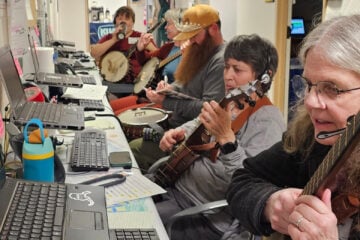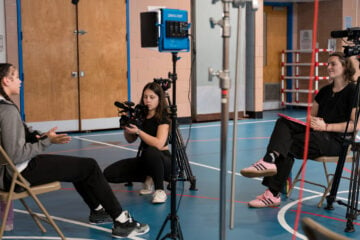BBC cuts hundreds of jobs, increases funding for World Service
BBC News is cutting 415 positions throughout the organization, shifting some funds to digital journalism and creating 195 positions, according to James Harding, the BBC’s director of news and current affairs. The British pubcaster will also invest about $22 million into the BBC World Service, whose U.S. distribution rights are owned by American Public Media.
The changes will save the BBC about $81 million annually, according to the network.
In a statement to Current via BBC spokesperson Penny Crook, the BBC World Service promised increased investment in the BBC Newshour, an expansion of its morning program World Update by a half-hour, a new “hourlong weekly program looking at news and current affairs from the perspective of a different part of the world,” and more podcasts and programming geared toward younger listeners. The service will reduce its live news coverage on weekends.
“There [is] a huge young, connected and curious audience out there who wants news but with a new wider agenda and delivery in a new way,” said Steve Titherington, commissioning editor for the World Service.
The staff and funding changes will not affect BBC content offered to PBS stations, Crook said. Likewise, the cuts will not affect Public Radio International’s partnerships with the BBC, which include PRI’s The World, according to PRI spokesperson Julia Yager.
Employees of three unions involved in BBC production had planned a 12-hour strike for July 23 to protest wages but reached a deal with management July 18 to avert the strike, according to the BBC. APM had been preparing for the possible strike, planning an interim schedule for stations in case the strike had disrupted World Service broadcasts, according to its blog for stations.






